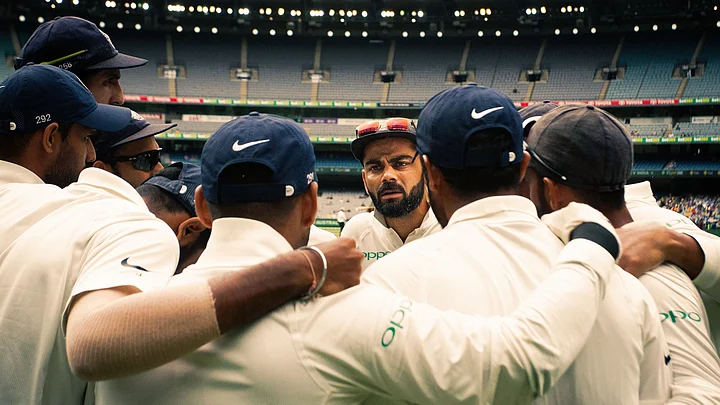Anyone who has been a cricket fan in the 90s knows that feeling. Especially in northern India with the advent of cable TV, matches from Australia would be broadcast on a channel called Prime Sports. Alarms would go off at 7 am, sometimes at 5:30 am and even at 5 am in the morning. We’d quietly sneak our quilt into the TV room, making sure the parents don’t wake up and start shouting.
All this, with the hope that the Indian cricket team would do well Down Under. By the time India was sipping the first tea in the morning, Australia was having lunch. And the Indian cricket fans’ entire day was doomed.
Because barring a few individual sparks in the 90s – from Sachin Tendulkar, then coach Ravi Shastri and later VVS Laxman – there wasn’t much to cheer about.
The turn of the century however changed things.
India got a captain named Sourav Ganguly, who wore his heart on his sleeves and wanted Indian cricket to be respected. For that they needed to tour well and win games in alien territories. He challenged his troops and the trend changed a bit. Drawn series in England in 2002, and in Australia in 2003-04 were highly commendable results.
But it still was not enough.
The golden generation of Indian batting tried their best but could only manage to win a series in Pakistan, West Indies and England in its time. Australia still remained a distant shore.
Losing in Australia Gave Virat a Roadmap
During the transition period when Tendulkar passed the baton to Virat Kohli, it seemed as if things were going back to the good old days of Indian cricket – lions at home, lambs abroad. Young players were trying to find their feet and pride.
On the last tour of Australia, Kohli was given the responsibility of leading the Test side. That tour was an eye opener – a self-discovery for Virat and what he wanted to do with his team. They played fearless cricket and didn’t take a step backward. They lost the series, but it certainly gave Virat the roadmap to lead his team and set his ambitions.
While playing at home, Virat kept searching for that formula to become a formidable force abroad. Despite laurels, series wins and achievements in the subcontinent, he kept reminding himself and his team that that is the norm and to be expected. To be truly remembered as one of the great generations of Indian cricket, they needed to go out of their comfort zone and win abroad.
Virat’s batting may have been influenced by Tendulkar, but his passion to win abroad was more in sync with the thought process of Ganguly.
While playing in Mumbai, Virat was finding methods to win matches in Melbourne.
He needed a dreaded set of fast bowlers. He kept discovering them, then backed them, protected them and motivated them to deliver the results. One can say, he is lucky to have such fast bowling talent at his disposal whereby Bhuvneshwar Kumar and Umesh Yadav are made to sit out. In fact, his set of fast bowlers have broken the record of the mighty West Indians of the 80s. Doesn’t it sound unreal? But credit must be given to him and the team management for nurturing such talent and bringing them this far.
Virat Took Criticism, But Virat Delivered
Virat’s attitude and energy have rubbed off onto his team. Despite the losses in South Africa and England, he took most of the criticism and didn’t allow anything to alter his ambitions or plans. He answered every question about the lack of practice matches and selection matters on tour, but didn’t allow anything to curtail his approach. By the time India reached their final frontier, this group was ready to make that leap.
After 71 years, and loads of morning alarms, India finally broke that barrier. Apart from the result, India achieved a lot more on this tour.
The tour started with a joke on the first-class cricket system of India and is ending with Australia questioning their cricket setup.
Australian cricket was once a model that every cricketing nation wanted to emulate – from their infrastructure to facilities, their playing standards to the quality of talent. And now their greats are writing about learning from India and our setup.
Maybe Virat, the batsman, will score many more runs and break many more records. But going by the signs, it will be Virat, the captain, who shall inspire. His leadership will leave a definitive mark on the history of Indian cricket, and his batting records will only add to it. He is one of the greatest batsmen India has produced. Australia was the first significant milestone of his journey. He has the men, the right age, the attitude, the will and the set of fast bowlers to add many more chapters.
(Nishant Arora is an award-winning cricket journalist who has worked for CNN-IBN and India Today in the past. More recently, Nishant served a stint as the media manager of the Indian Cricket Team.)
